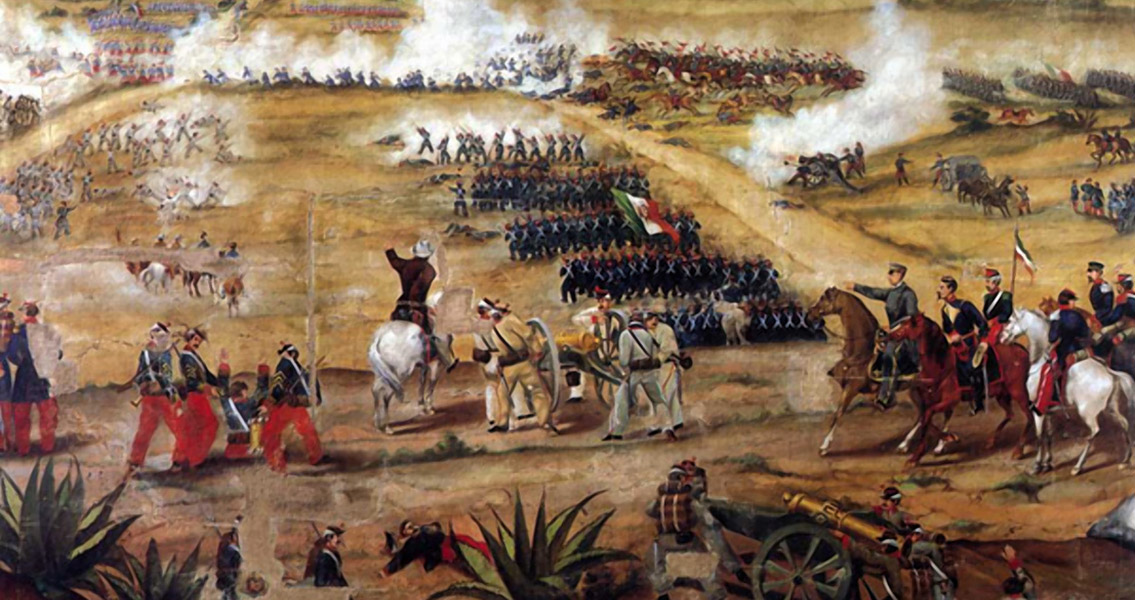<![CDATA[On 5th May 1862, a hastily assembled group of 2,000 Mexican soldiers managed to secure a crucial victory against a massive French invasion force. The act of defiant resistance, at the tiny town of Puebla de Los Angeles, has since been immortalised in Cinco de Mayo, an annual festival celebrated in Mexico and even more enthusiastically perhaps, the USA. For many in the US the holiday is a celebration of Mexico, with Mexican food and drink consumed at themed parties. Schools hold events educating students on the battle's historical significance, and the unique culture of the USA's southern neighbour. The victory at the Battle of Puebla didn't itself win Mexican Independence, that had come forty-one years earlier, but it showed the country's ability to stand up against the threats of powerful imperial nations. The battle came as the powers of Europe attempted to reassert their influence in South and Central America. In 1861, Mexico was forced to default on its debts to the governments of Britain, France and Spain. All three European powers deployed naval forces to Veracruz, determined to collect the debt owed to them. Mexican president Benito Juarez managed to negotiate a settlement with Britain and Spain, and their forces withdrew; such a deal could not be brokered with France. Napoleon III, the French ruler, seemed to sense an opportunity to carve out new territory for the French Empire in the Americas, especially considering the precarious state of Mexico at that time. Late in 1861, a heavily armed French fleet attacked Veracruz, successfully landing an invasion army on Mexican territory. Juarez and his government were forced to retreat from the capital, and French forces started to assert control over significant swathes of Mexico. The situation looked precarious for the Mexican government, rulers of a country that had only enjoyed independence since 1821. At Puebla de Los Angeles however, something unexpected happened, laying down a crucial marker of Mexico's ability to protect its freedom. The location itself seemed insignificant. A tiny town in central Mexico with little strategic value. Nevertheless, Juarez decided it was where a stand should be made. A force of some 2,000 loyal men were rounded up and sent to the town, under the leadership of General Ignacio Zaragoza. Perilously underequipped and seemingly hopelessly outnumbered by their enemies, the men fortified the town as best they could and waited for the French assault. The attack came early on the 5th May, some 6,000 French troops supported by heavy artillery descending on Puebla from the north. The battle raged through the day and into the evening. The French were forced to retreat, having lost some 500 troops while the Mexican casualties numbered less than 100. Victory didn't decide the Franco-Mexican War, it raged on for another five years, and in 1864 Napoleon III even had the confidence to name Austrian Archduke Ferdinand Maximilian as Emperor of Mexico. The Battle of Puebla was, however, a rallying call for the Mexican forces, leading to more and more people signing up to the resistance movement. When the French surrender came in 1867, the triumph on the 5th May could be looked back upon as a crucial turning point in Mexico's fight to maintain its independence. ]]>
Cinco de Mayo – The Anniversary of the Battle of Puebla
